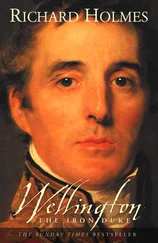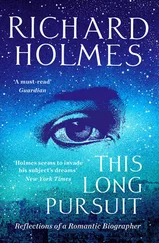Anna Seward (1747–1809), who became the poet known as ‘the Swan of Lichfield’, was not born when Johnson left for London. But she became an invaluable source for local memories and hearsay about him, especially through her grandfather (who had taught Johnson), her mother (who knew Elizabeth Porter) and the Walmsley family, about all of whom she wrote extensively. Boswell delights in disproving her stories on innumerable points. Yet Anna frequently throws revealing light on young Johnson’s emotions. One of her most suggestive formulations is this: ‘Johnson was always fancying himself in love with some princess or other.’ 19
Johnson first fell in love some time in his middle teens. His princess was Ann Hector, the sister of his school-friend, Edmund Hector, at Stourbridge. It is probably for her that he wrote his first poem: ‘On a Daffodil: The First Flower that the Author had seen that Year’, which refers to a smiling nymph, Cleora. A distinguished modern biographer, Walter Jackson Bate, remarks that ‘when we think of the later Johnson, the very title is hilarious’. 20 Yet this seems a curiously revealing admission. For the poem does not appear particularly absurd for a sixteen-year-old:
But while I sing, the nimble moments fly,
See! Sol’s bright chariot seeks the western main,
And ah! behold the shriveling blossoms die,
So late admir’d and prais’d, alas! in vain!
With grief this emblem of mankind I see,
Like one awaken’d from a pleasing dream,
Cleora’s self, fair flower, shall fade like thee,
Alike must fall the Poet and his theme. 21
When Boswell discovered this romance, he used another characteristic form of deflection: he omitted it from the Lichfield years, and retold it retrospectively as a reminiscence of Johnson’s in his sixty-seventh year. It was displaced, and thus disarmed. Yet what Johnson says is moving and significant. ‘She was the first woman with whom I was in love. It dropt out of my head imperceptibly; but she and I shall always have a kindness for each other.’ When he talked of Ann Hector that night, ‘he seemed to have had his affection revived; for he said, “If I had married her, it might have been as happy for me.”’ 22
Later at Stourbridge, just before going up to Oxford, he fell more seriously in love with Olivia Lloyd, the beautiful and well-educated daughter of a rich Quaker family of ironmasters and philanthropists. Olivia was two years older than him, well-read in Greek and Latin classics (which she later taught to her nephews), amusing and quick, and renowned for her looks. She was known locally as ‘the pretty Birmingham Quakeress’. 23 Johnson fantasised about her throughout his university years, and she was one of the dreams he had to abandon bitterly along with his degree.
Olivia was the first in a line of pretty, vivacious bluestockings whom Johnson quietly worshipped (and also helped professionally) in London. Boswell takes a single sentence to describe the affair ‘he was much enamoured of Olivia Lloyd … to whom he wrote a copy of verses, which I have not been able to recover.’ 24
Edmund Hector recalled acting as a go-between in this situation: ‘some Young Ladies in Lichfield had a mind to act The Distressed Mother , for whom [Johnson] wrote the Epilogue and gave it me to convey privately to them.’ Johnson’s agonies of self-consciousness about his monstrous appearance are glimpsed in that ‘privately’.
Other poems possibly connected with Olivia Lloyd include a series of translations from Horace, normally the most urbane, ironic and detached of poets. But Johnson selects passages that are surprisingly moody, bleak and romantic:
But being counsell’d to go home
And see my mistress face no more
Confus’d about the streets I roam
And stop’d unwilling at her door.
Then to the inclement skies expos’d I sat
And sigh’d and wept at her relentless gate. 25
Johnson must have chosen these particular stanzas (from Horace’s Eleventh Epode) because they reflected something in his own situation, his eternal longings for la princesse lointaine. As a picture of the lover unrequited, the man shut out, the roamer through the dark windswept streets, they also prepared him for Savage.
There are several other love-poems and poetical flirtations (mostly collected by Edmund Hector) which date from this sad post-Oxford period: ‘To a Young Lady on her Birthday’, ‘An Ode on a Lady Leaving her Place of Abode’, and a verse to the eighteen-year-old Dorothy Hickman, ‘Playing on the Spinet’. Dorothy was the daughter of another friend at Stourbridge, George Hickman, and she married soon after in 1734.
The pattern of longing, frustration and self-laceration (however formalised in drawing-room ‘impromptus’) is common throughout these poems. As he wrote of Dorothy Hickman, ‘We bless the Tyrant, and we hug the Chain.’ 26
Young Johnson’s daydreams were not only confined to suitable girls. His princess might also be some tempting, racy actress. At about the time he first met Elizabeth Porter he also ‘was in love with’ a Junoesque young actress who visited Lichfield with a local repertory company, playing Flora, the romantic lead in Colley Cibber’s suggestive farce, Hob: or the Country Wake. 27 David Garrick seems to have known something about this infatuation, and remarked that Johnson (possibly because of his eyesight) did not have a delicate (‘ elegans ’) taste in the female form, and could also appreciate brazen and ‘vulgar’ sexual talents. 28 Boswell once again safely confined this episode to Johnson’s reminiscences forty years later.
Anna Seward seems to have been right about Johnson’s ‘princess’ syndrome, and the pattern that emerges is not unlike the classic fairy-tale of Beauty and the Beast. Johnson’s marriage does not really seem to have altered this, and throughout Johnson’s early London years there is evidence that it continues. It made Johnson both peculiarly sympathetic, and perhaps even vulnerable, to Savage’s own much wilder emotional fantasies.
Johnson’s strange romance with Elizabeth Porter began in 1734. His good friend Harry Porter, a mercer at Edgbaston, had been taken ill, and Johnson rode out frequently from Lichfield to attend Harry’s sick-bed. Johnson became a friend of the whole family in their distress: two young sons Jervis and Joseph; an eighteen-year-old daughter, Lucy; and Mrs Elizabeth Porter, then aged forty-five. 29
Boswell, and all Johnson’s subsequent biographers except Anna Seward, failed to draw the obvious conclusion. If Johnson had any interest other than pure friendship, it was evidently in the princess, the eighteen-year-old Lucy, to whom he had been attracted since his schooldays. 30 Her mother Elizabeth, who was nearly twice his age and devoted to her ailing husband, was not initially the object of his dreams.
A formal introduction to Lucy, as with other girls, had later been made by Edmund Hector, who bought his clothes from Harry Porter. 31 This was probably in 1732, when Lucy was a blossoming sixteen and Johnson twenty-three. She vividly recalled Johnson from those early visits, with a physical revulsion that is expressive. This is Beauty describing the Beast, as reported years later to Boswell. Both maintain the comfortable fiction that Johnson was only ever interested in Lucy’s mother. But this is not what emerges, and it is not what Anna Seward thought either ‘the rustic prettiness, and artless manners of her daughter, the present Mrs Lucy Porter, had won Johnson’s youthful heart.’ 32
In pictorial terms, these early meetings resulted in perhaps the most unforgettable image of Johnson in his twenties that we have. Boswell records:
Miss Porter told me, that when he was first introduced to her mother, [Johnson’s] appearance was very forbidding: he was then lean and lank, so that his immense structure of bones was hid-eously striking to the eye, and the scars of the scrophula were deeply visible. He also wore his hair, which was straight and stiff, and separated behind: and he often had, seemingly, convulsive starts and odd gesticulations, which tended to excite at once surprize and ridicule. 33
Читать дальше












